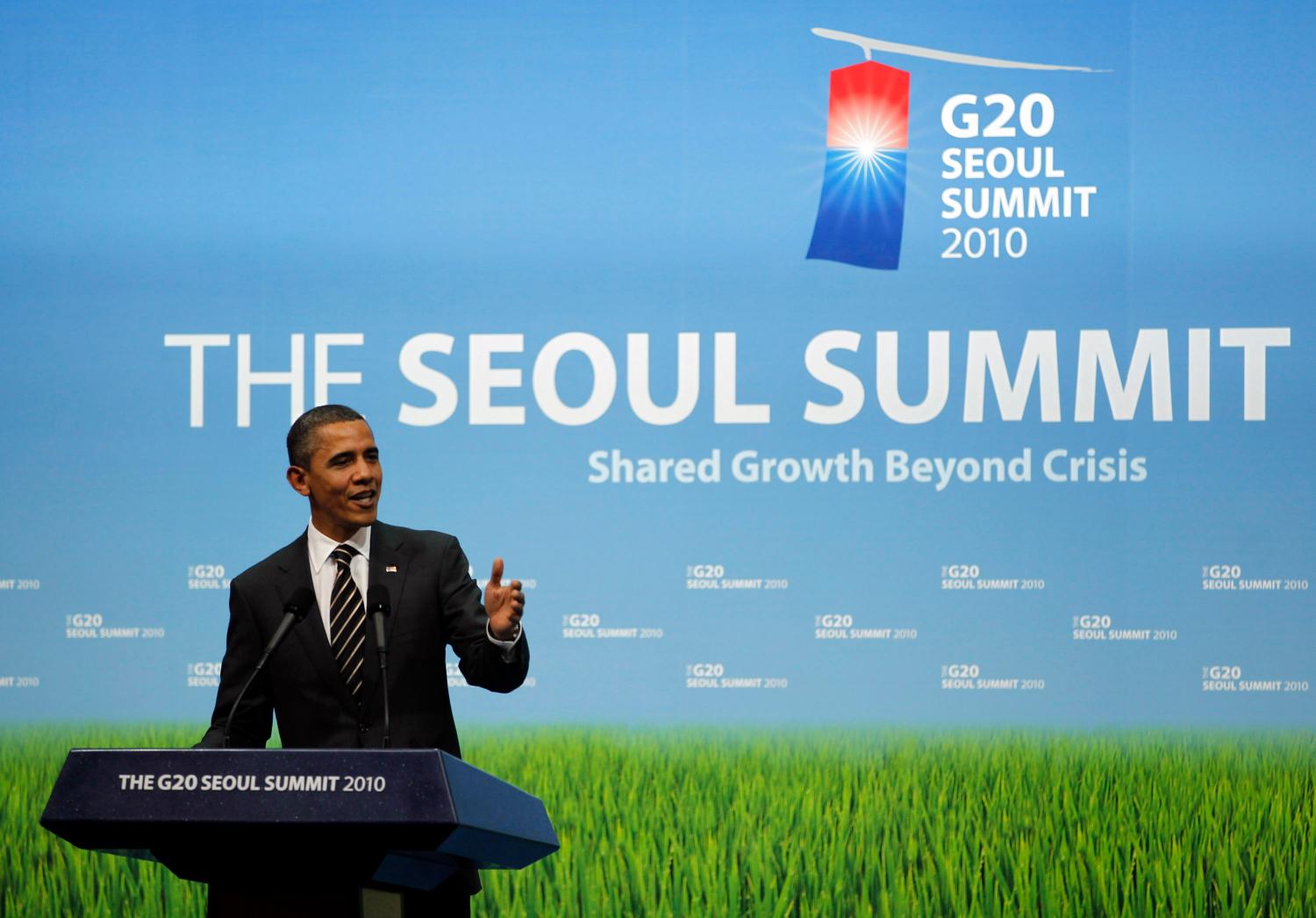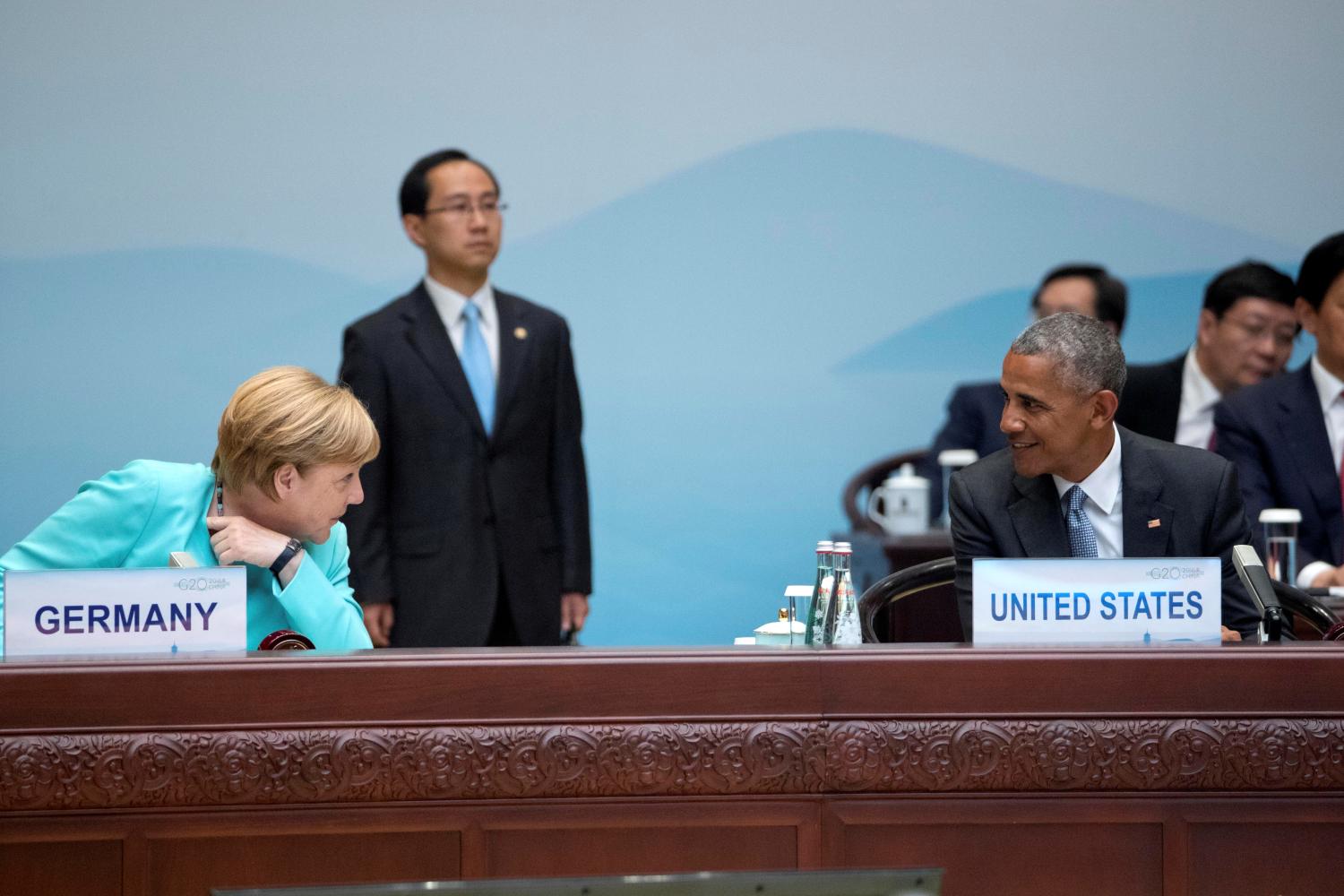On November 11-12, heads of state and government of the Group of Twenty (G-20) will meet for the fifth time since they started convening two years ago to deal with the global financial crisis and the ongoing recovery. This time around, G-20 leaders will meet in Seoul, Korea. It will be the first time that a non-G8 and newly-industrialized country hosts a G-20 summit, demonstrating the increased representation of new political and economic actors in international policy coordination and global governance.
Yet, the recent policy debates and media reports have focused on concerns over impending currency wars in the form of competitive devaluations and unilateral policies. Many of these debates and reports seemed to cast pessimism and cynicism over the G-20’s ability to effectively pursue international policy coordination and economic cooperation. However, the recent agreements made by G-20 finance ministers during their late-October meeting in Gyeongju seem to have brought back some optimism and hope for progress. Nevertheless, it still remains to be seen how the outcomes of the upcoming Seoul Summit will impact the future of the G-20 to effectively continue as the “premier forum for international economic cooperation.”
Joining the debate on the challenges and expectations for the G-20 Seoul Summit, experts from the Brookings Global Economy and Development program explore a range of critical issues and offer policy recommendations for G-20 leaders to consider in order to strengthen the global economic recovery.
The G-20 and Macroeconomic Policy Coordination at the Crossroads
Kemal Derviş focuses his analysis on the key interrelated macroeconomic policy challenges that are critical for the upcoming meeting, including issues of fiscal policy coordination, spillover effects from monetary and exchange rate policies, and global current account imbalances.
Downloads:
Assessing the Global Economy and Supporting the Recovery at Seoul
Eswar Prasad and Karim Foda assess the state of the global economy and find that it has lost momentum and is teetering between a slowdown and a tepid recovery. They assert that G-20 leaders need to address the issues surrounding the growing dichotomy between emerging markets and advanced economies in terms of macroeconomic prospects as well as policy space.
Downloads:
Timely Action by the G-20 Can Help Middle Eastern Countries Help Themselves
Edward Sayre assesses how Middle East economies have fared in the two years following the global financial crisis. He states that the G-20 has the ability to assist the Middle East during the recovery phase through guidance and policy support in three areas: trade reform, public sector reform and private sector development.
Downloads:
Sustaining Africa’s Economic Recovery
Mwangi Kimenyi and Ezra Suruma discuss how the global economic recession brought to a halt one of the longest periods of economic expansion in Africa’s history. They offer four policy recommendations for G-20 leaders to consider in aiding Africa’s development that include greater representation of Africa in the G-20, fulfilling prior commitments and improving transparency, private sector involvement and publicprivate partnerships, and increased vigilance against illicit resource flows.
Downloads:
Taking Action at the Seoul G-20 Summit
Colin Bradford and Johannes Linn argue that, amidst the overheated rhetoric and doubts regarding international cooperation, G-20 leaders have a collective responsibility at the Seoul meeting to agree on a policy package for global rebalancing, international financial regulation and international institutional reform. They offer eight policy recommendations for leaders to take forward in Seoul in order set the course for a steady global economic recovery.
Downloads:
Predictable Aid from G-20 Countries Can Reduce Conflict in the Developing World
Raj Desai, Anirban Ghosh and Homi Kharas look into the G-20 agenda of development at the upcoming Summit. They examine how fragility and conflict in many developing countries continue to hinder development and economic growth, and state that the G-20 Summit in Seoul is an excellent opportunity for leaders to address this issue.
Downloads:
Currency Wars and Collateral Damage: the G-20 Faces its Litmus Test
Mauricio Cárdenas and Eduardo Levy-Yeyati stress that the G-20 Seoul Summit will be a critical test for international policy coordination. They argue that G-20 leaders should stop the United States and China from pursuing the beggar-thy-neighbor policies that pose a major threat to global economic stability.
Downloads:
What Do the Europeans Bring to the G-20 in Seoul?
Domenico Lombardi examines the economic performance of European countries and discusses what European leaders bring to the table at the G-20 Summit in Seoul. He argues that at the upcoming meeting European countries will back the United States in its increasing confrontation with China, which will provide a critical swing in the pressure on China to pursue greater flexibility in its exchange rate policies.
Downloads:
The Brookings Institution is committed to quality, independence, and impact.
We are supported by a diverse array of funders. In line with our values and policies, each Brookings publication represents the sole views of its author(s).




